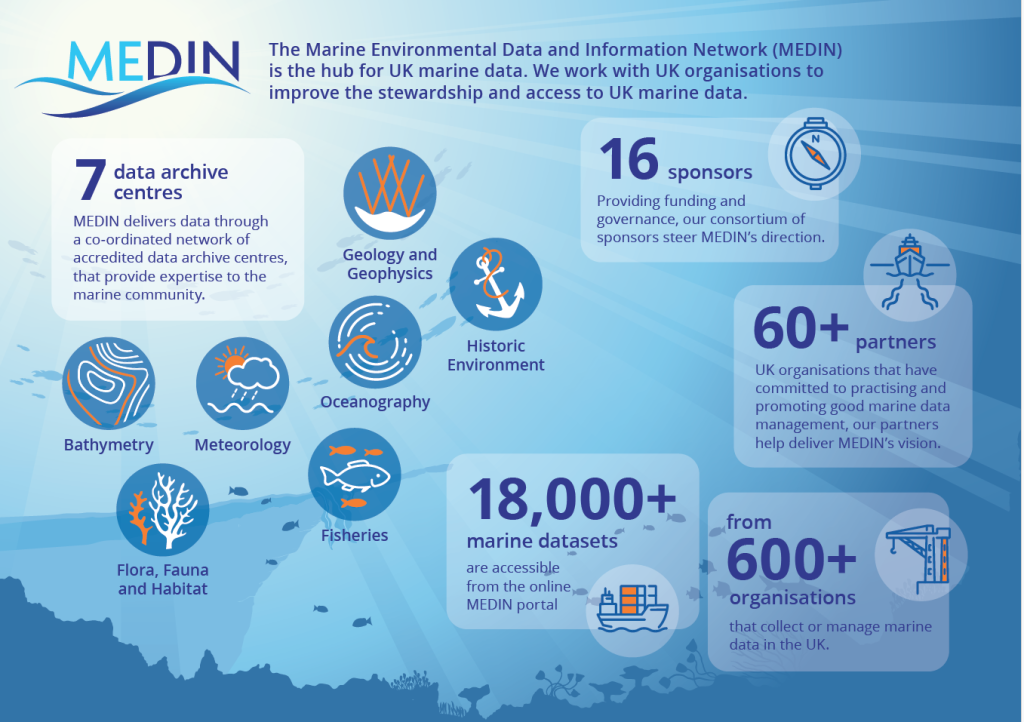Marine data are held by many organisations in the UK and are collected for many different purposes:
- for the timing of tides
- to determine the position of submerged obstacles
- for marine conservation
- to monitor and forecast weather and ocean states
- to site marine structures
- for scientific research to understand marine processes
The Marine Environmental Data and Information Network (MEDIN) promotes sharing of, and improved access to, these data. It is an open partnership and its partners represent government departments, research institutions and private companies.
Marine data are expensive to collect and always unique in relation to time and geographical position. There are wide benefits to be gained from working together to share and properly manage the data.
What we do
MEDIN marine data management
A short animation showing the importance of marine data management and the benefits of the Marine Environmental Data and Information Network (MEDIN).
Main users of MEDIN
Marine data are required for a range of reasons including:
(i) Monitoring of our seas for reporting and status assessment.
(ii) Informing marine planning and assisting in the range of human uses, for example, safe navigation, fishing sustainably.
(iii) Assimilating data into operational oceanographic models to increase the accuracy of forecasts (e.g. by the Navy and Met Office). Computer models used for weather forecasting assimilate marine data as do the models used to predict storm surges. Accurate forecasts affect planning for many other sectors within the UK.
Marine data are required by commercial organisations at many stages of a project including: assessing a resource, selecting an optimal site or route, informing engineering design based on operational conditions, satisfying licensing requirements, environmental impact assessments. They are a key input in operational planning.
Marine data underpin key scientific research, are used in hypothesis testing and are required in order to put research into a geographic and temporal context.
There is a demand for marine data from conservation charities and NGOs, both for general interest reasons and also to allow stakeholders to participate in marine planning and management processes.
There is a demand for marine data from individual members of the public. This stems from general interest, the desire to use our coasts and seas safely for recreation and tourism and, increasingly a desire to contribute to marine planning.
